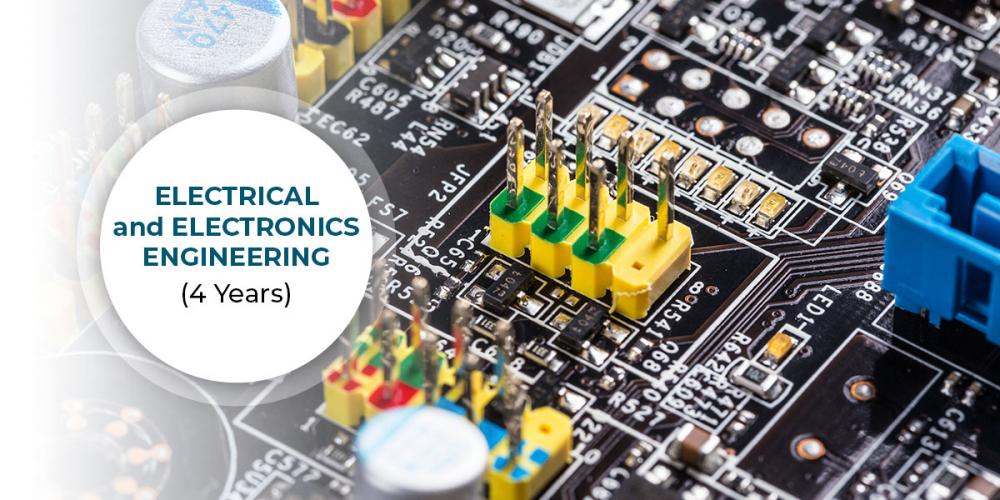
Program Profile
The electronics sector constitutes the infrastructure of the information sector, which is considered to be the next stage. The link between information and energy takes place under the leadership of electrical engineering. The infrastructure of the developments regarded as technological miracles stands on electricity.
Compared to many other professions, electrical engineering represents a field that requires the acquisition of rich abstract and mathematical knowledge.
Thanks to the integrated circuits, electronic devices are getting more compact, and it is possible to get them cheaper. Also, electronic technology is developing in the direction of reducing technology costs by increasing information processing, transmission rates, and the amount of information stored in unit volume.
After your study at Electrical and Electronics Engineering, you will have:
- the necessary level of technical knowledge and information technology skills
- analysis and efficient problem-solving abilities
- diagrammatic communication skills,
- imagination, innovation, and attention to detail
- critical thinking and business perception of the industry
- the organization, project management, and administration skills
- capability to work in a team with various engineers
Career Opportunities
Electrical electronics engineering teaches the necessary knowledge of the link between information and energy. With an education based on theoretical and practical foundations, students will have the opportunity to apply what they have learned by gaining knowledge and experience that enable them to work at high levels in the electronics sector.
Upon finishing the undergraduate education of the Department of Electrical and Electronics Engineering, you will have the opportunity to work in official and private institutions in the fields of electricity generation, electrical transmission, distribution areas, communication, plan-project offices, industrial automation sector, robotics, control, biomedical, electronic design, maintenance, and repair.
You can work as a Project Manager, System Engineer, Product Development Engineer, and Sales Engineer. You can also work in departments like software development, computer-aided systems design, industrial automation systems design, power systems design, data collection and analysis, and R&D.
Course List
Please click here to reach the course list of the Electrical and Electronics Engineering Department.

